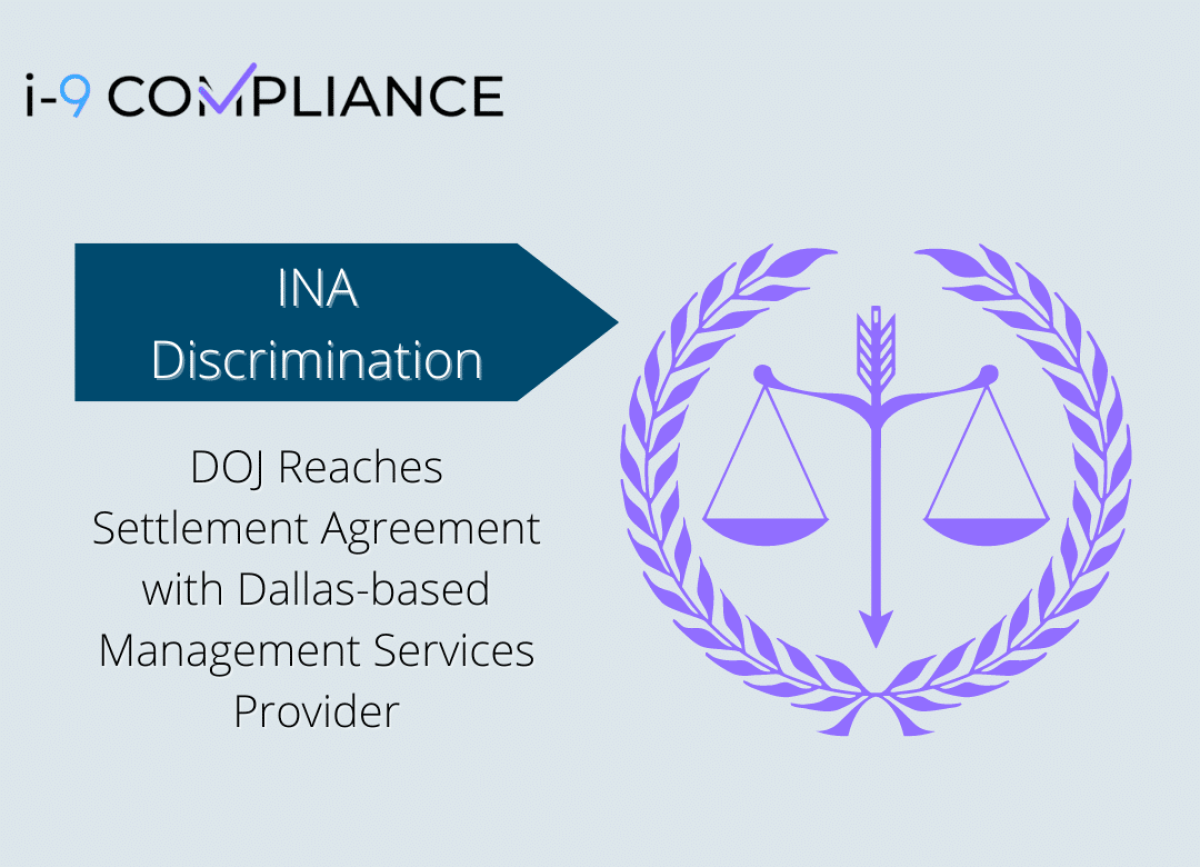
U.S. Government Settles INA Discrimination Case
May 06, 2024
The Department of Justice (DOJ) recently announced that it reached a settlement agreement with a Dallas-based management services provider. This agreement addressed discrimination allegations under the Immigration and Nationality Act (INA), resolving the DOJ’s determination that the company refused to consider a naturalized U.S. citizen for a position.
According to Kristen Clarke, the Assistant Attorney General of the DOJ’s Civil Rights Division, “Discrimination against workers based on their citizenship or immigration status not only harms workers but employers as well because they miss out on qualified applicants.” She emphasized, “Ignorance of the law is no excuse, and the Justice Department will continue to hold accountable employers that violate our nation’s federal civil rights laws.”
The DOJ explained that the Civil Rights Division’s Immigrant and Employee Rights Section (IER) began the investigation after receiving a complaint from a worker. According to the worker, the Dallas-based company recruited her for employment before becoming aware of her citizenship status. After learning about her naturalized citizenship, the company explained that it could not hire her and rescinded the offer. It claimed a contract with the U.S. government restricted its hiring ability.
The employer’s contract required it to hire U.S. citizens for certain positions. However, the requirement did not restrict the hiring to U.S.-born citizens only. As such, the DOJ announced that the company misunderstood the criteria when it excluded a naturalized citizen from employment.
Under the INA, employers cannot discriminate against workers based on their citizenship status, immigration status, or national origin in recruitment, hiring, or firing decisions. The INA only allows exceptions when law, executive order, or government contracts require a specific status. The IER’s investigation determined that the employer’s agreement with the government required hiring U.S. citizens for specific work. As revealed in the case, it did not state that these citizens had to be U.S.-born.
Under the terms of the agreement between the employer and DOJ, the former will pay the affected worker lost wages and benefits of $22,400 as well as $155 in interest. It will also pay a civil penalty to the U.S. of $4,610 and revise its policies to comply with the INA. Finally, the company must provide personnel with training on how to comply with the INA’s anti-discrimination requirements.
Employers often struggle with INA compliance, especially when completing the employment eligibility verification (Form I-9) process. One way to ensure compliance is by investing in an electronic I-9 management tool. This tool digitizes the process, helps guide employers through the steps, and includes optional E-Verify integration.
Learn more about automating your employment eligibility verification and ensuring compliance with I-9Compliance.